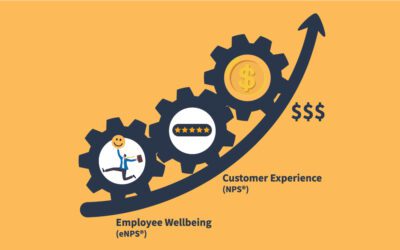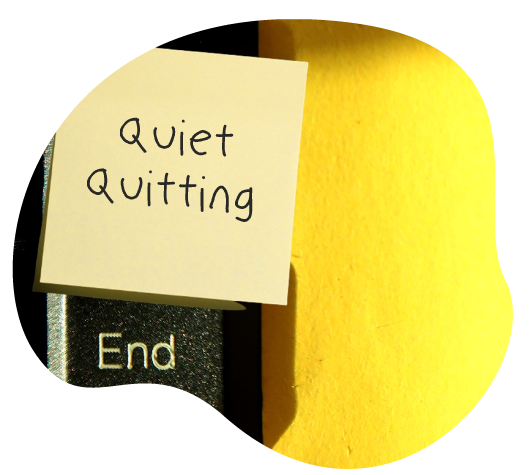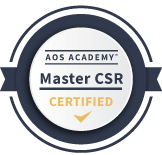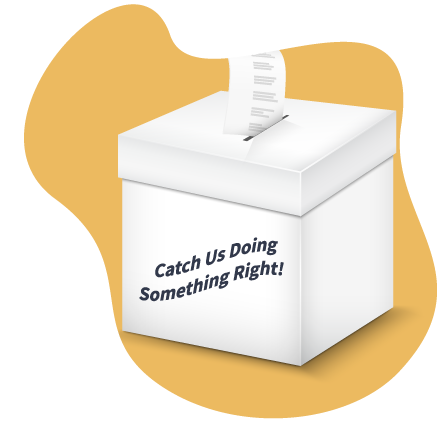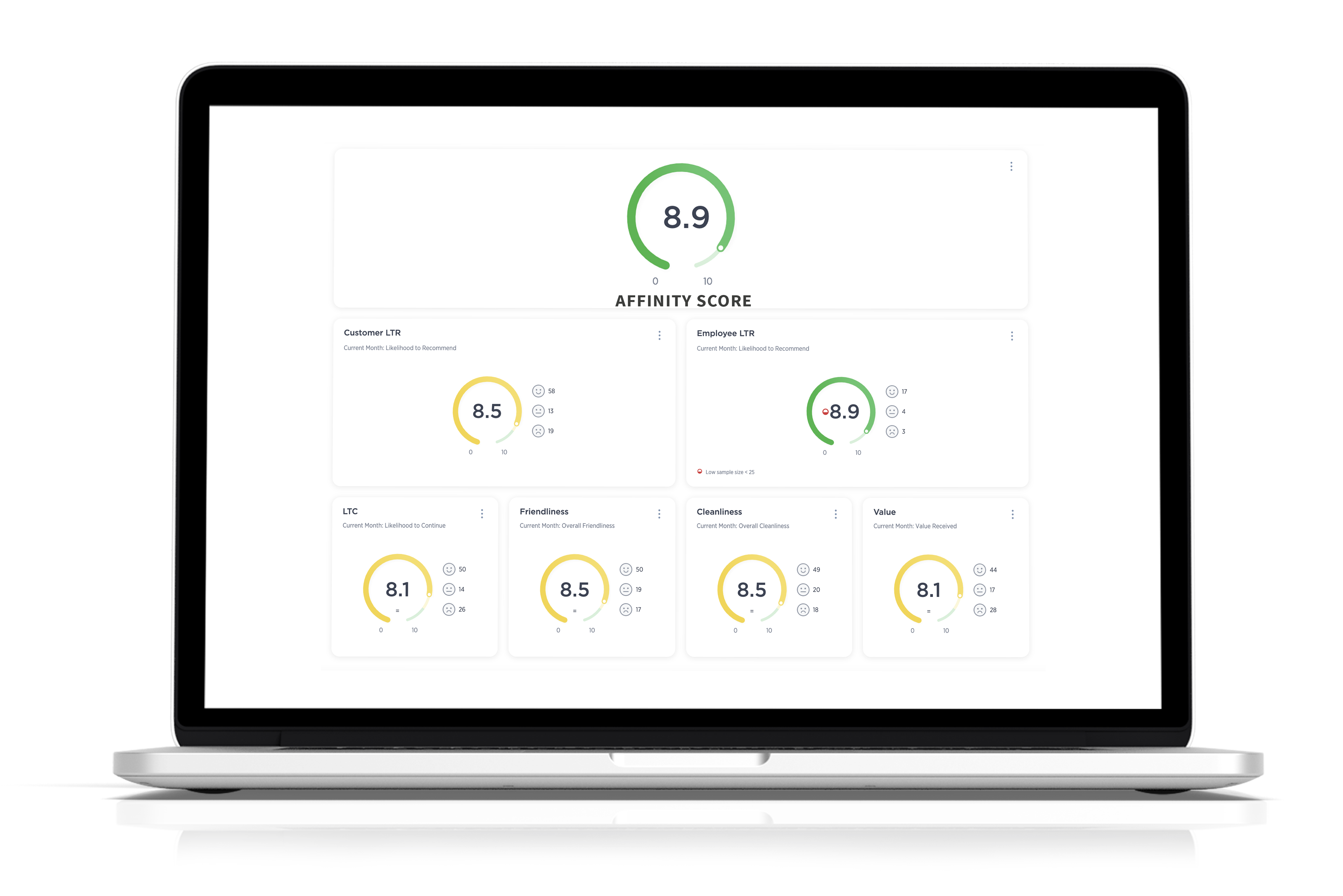In the fitness industry, sales often grab the spotlight due to their immediate results and clear metrics, like quick sign-ups and instant revenue boosts. However, as industry leaders, it’s crucial to understand why retention might seem less controllable but is equally vital for sustainable success.

The Mindful Leader: Transforming Fitness and Wellness Businesses from the Inside Out
The Mindful Leader: Transforming Fitness & Wellness Businesses from the Inside Out


Grant Ian Gamble is a best-selling mindful leadership author and speaker. He has over 30 years of experience in leading teams to create innovative customer experiences, building engaged workforces, and developing leaders who prioritize mindfulness in their approach.
As a co-founder of AFFINITY OS™ and an advocate for mindfulness in leadership, I’ve witnessed firsthand how the core principles of mindfulness can profoundly transform fitness and wellness businesses. In today’s fast-paced and competitive environment, the success of a fitness and wellness business hinges not just on cutting-edge equipment or trendy classes, but significantly on the quality of leadership and the culture it fosters. This article explores how being a mindful leader can be a game changer in this dynamic industry.
Understanding Mindful Leadership in the Fitness and Wellness Business
Mindful leadership is about being present, aware, and conscious in every decision and interaction. In the context of a fitness and wellness business, it translates into leading with empathy, awareness, and a deep understanding of the needs of both your team and members. This approach goes beyond traditional management; it’s about creating an environment where team members feel valued and members feel deeply cared for.
The Impact on Team Member Engagement
In any fitness and wellness business, your team is your most valuable asset. Mindful leadership directly impacts team member engagement and satisfaction. When leaders are present and approachable, it fosters open communication and a sense of belonging among team members. This not only enhances team collaboration and morale but also significantly reduces team member turnover—a critical issue in the fitness industry.
Enhancing Member Experience
The ripple effect of mindful leadership extends to the customer experience. In a fitness setting, where personal goals and well-being are at the forefront, members seek more than just services; they look for support, understanding, and motivation. A mindful leader ensures that their team embodies these qualities, leading to deeper member relationships, enhanced loyalty, and ultimately, a stronger brand reputation.
Driving Sustainable Business Growth
Mindful leadership is also about making decisions that are aligned with long-term business goals without compromising core values. In a fitness and wellness business, this could mean investing in sustainable practices, focusing on quality over quantity, and prioritizing member well-being over short-term gains. This approach not only ensures business growth but also contributes to the overall health and sustainability of the industry.
Incorporating Mindfulness into Your Leadership Style
- Practice Active Listening: Encourage open dialogue with your team and members. Listen more than you speak, and make decisions that reflect their needs and feedback.
- Foster a Positive Work Environment: Create a space where team members feel safe to express ideas and concerns. This encourages innovation and a sense of ownership among team members.
- Lead by Example: Embody the wellness lifestyle you promote. This authenticity resonates with both your team and members, enhancing your credibility and influence.
- Make Conscious Decisions: Consider the long-term impact of your business decisions on your members, team members, and the community.
- Invest in Self-Care: As a leader, your well-being is crucial. Engage in regular self-care practices to maintain your mental and physical health.
Conclusion
Transforming your fitness and wellness business starts with you, the leader. By adopting a mindful approach, you’re not only enhancing the immediate environment of your establishment but also contributing to a larger cultural shift in the industry. This shift places greater value on conscious leadership, sustainable growth, and holistic well-being. As leaders in the fitness and wellness industry, let’s commit to this transformation from the inside out, for the betterment of our businesses and the communities we serve.




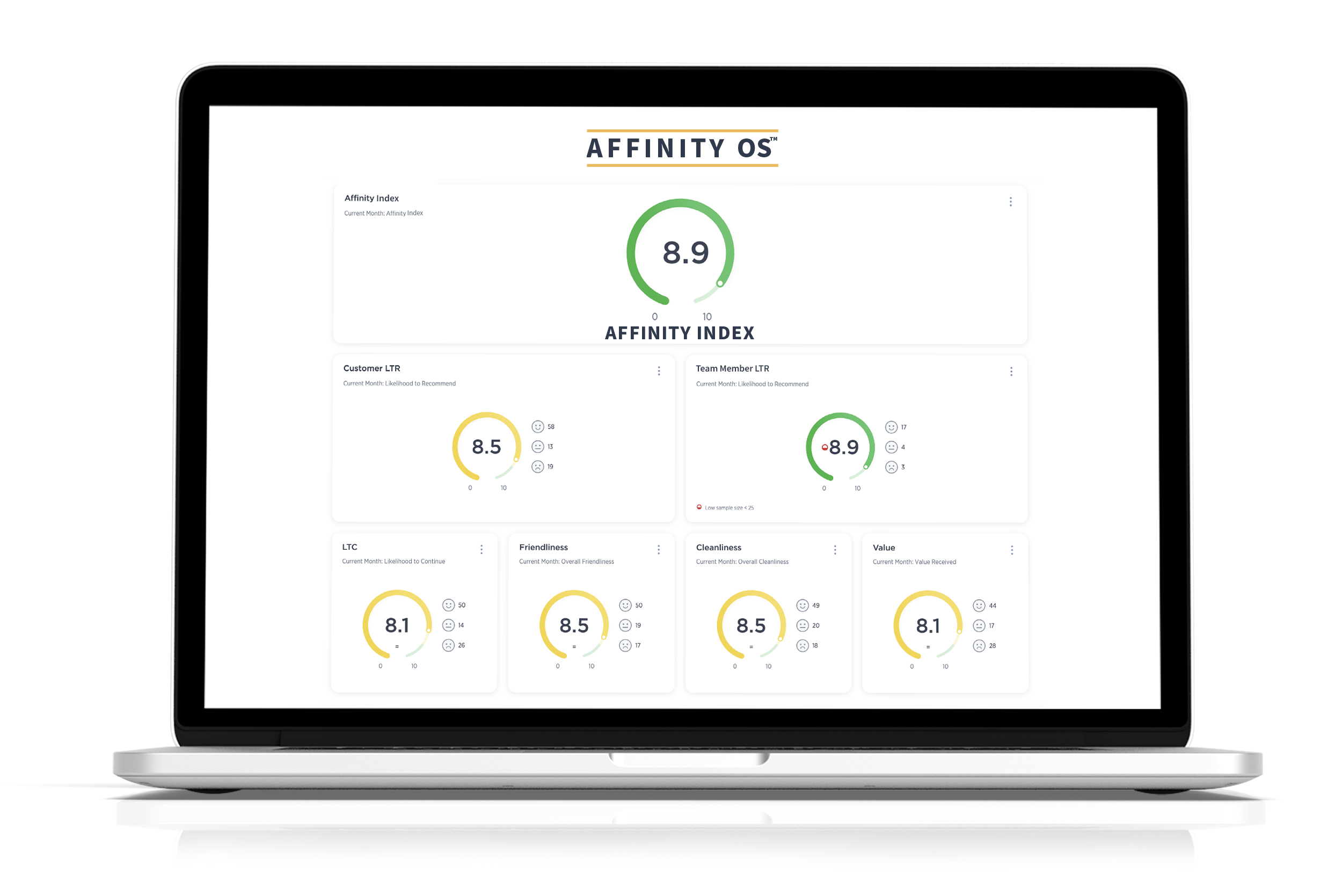





Dive into the heart of exceptional leadership and customer-centric success with AOS Academy. Our certification courses, guided by the “PEOPLE FIRST, ALWAYS” mantra, are designed to support professionals as mindful, effective leaders and service providers.
By integrating key insights from Grant Ian Gamble’s best-selling mindful leadership book, “The Affinity Principle”, we focus on nurturing people-centric cultures of empathy, effective communication, and customer service excellence.
The AOS Academy is more than just training – it’s a journey towards personal and professional transformation, ensuring every interaction and decision is rooted in understanding and valuing people first.
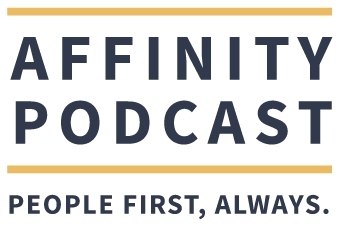

AFFINITY Podcast EPISODE 10 | Collecting and Leveraging eNPS for a People-Centric Culture, Mindful Leadership, Talent Development and Talent Retention







Put PEOPLE FIRST, ALWAYS and watch your business flourish.
Dive deep into the latest trends in customer experience and team engagement, mindful leadership and management. Discover practical tools and strategies that you can use to build a people-centric culture, the foundation for sustainable long-term business growth and success.
Led by mindful leadership expert, Grant Ian Gamble, a best-selling author and true visionary with over 30 years of experience in leading teams to create innovative customer experiences, building engaged, inspired and fulfilled workforces, and developing leaders who prioritize genuine connection in their approach.
The guiding principle behind all of Grant’s work is PEOPLE FIRST, ALWAYS.
More Articles:
Why Sales May Seem Easier Than Retention in the Fitness Industry
Dashboards are Dead. AI-Driven Business Intelligence is the Future.
When I read “Dashboards are Dead”, a recent ThoughtSpot headline, it made me cringe.
Our product, AFFINITY OS™, uses dashboards to visualize the data our AI engine collects from customers/members and team members of our clients’ businesses. Did this mean we needed to rethink the UX, and/or the BI (Business Intelligence) that brings our data into focus?
As ThoughtSpot said in their opening paragraph, “For more than 20 years, dashboards served as a foundational element of business intelligence, helping leaders visualize and share valuable data across their organization.”
How to Win the America’s Cup of Fitness Business
Team New Zealand’s innovative application of digital technology in yacht racing contributed significantly to its back-to-back victories in the America’s Cup races of 2017 and 2021. The team had a thorough understanding of the performance of its 75-foot AC75 monohull even before its launch in 2021, thanks to an AI-powered simulation tool. This tool enabled the team to conduct virtual races across numerous prototypes, honing their skills to navigate at speeds of 50 knots on meticulously refined hydrofoils under challenging conditions.
Let's Connect!
CUSTOMER EXPERIENCE & TEAM ENGAGEMENT: AFFINITY OS™ | WELLNESS INTEGRATION | MINDFUL LEADERSHIP: "THE AFFINITY PRINCIPLE"
0475 866 592







The Affinity Principle™ by Grant Gamble presents a formula for business success through a people-centric, mindful leadership approach.
PEOPLE FIRST, ALWAYS.












